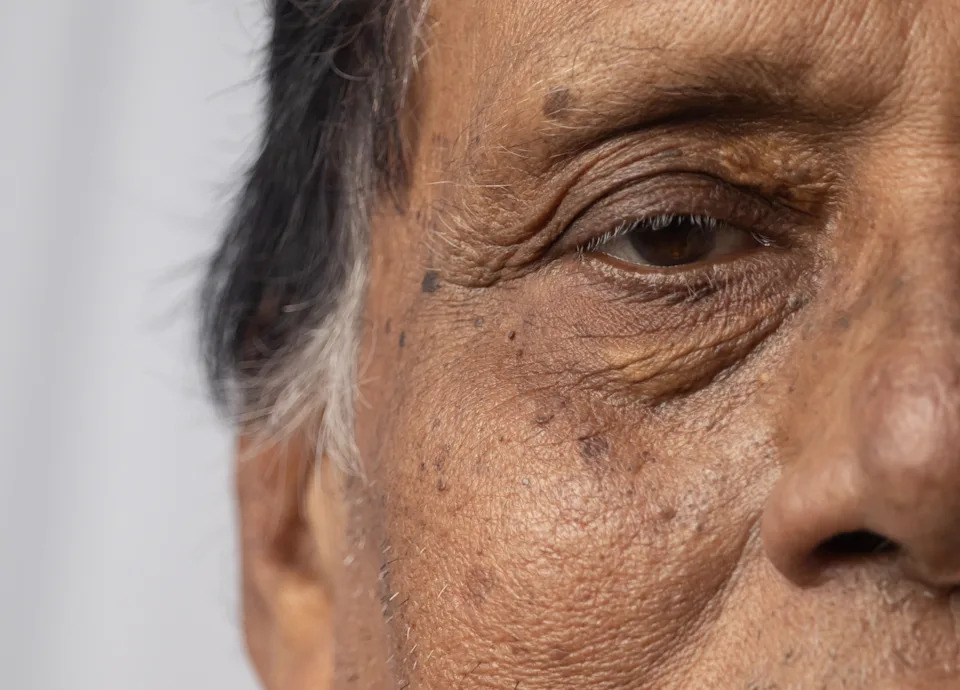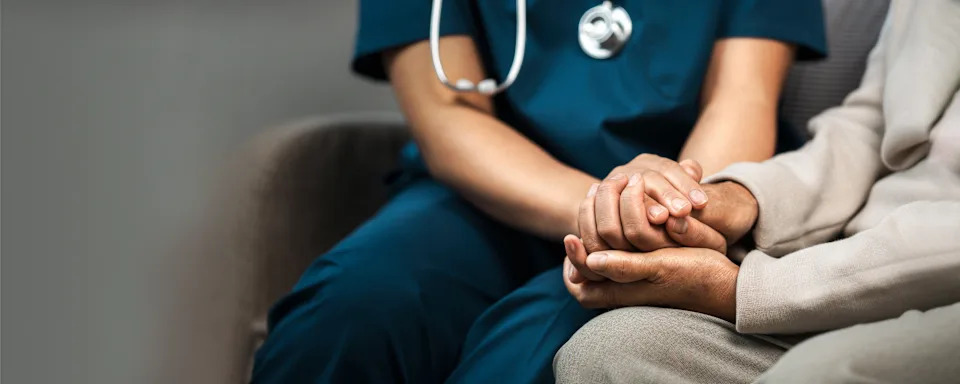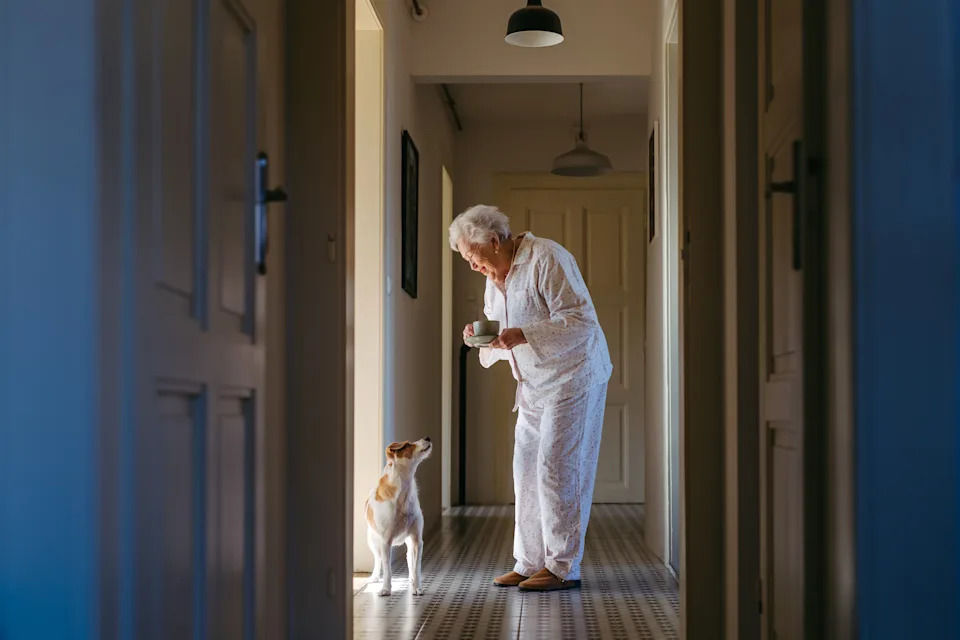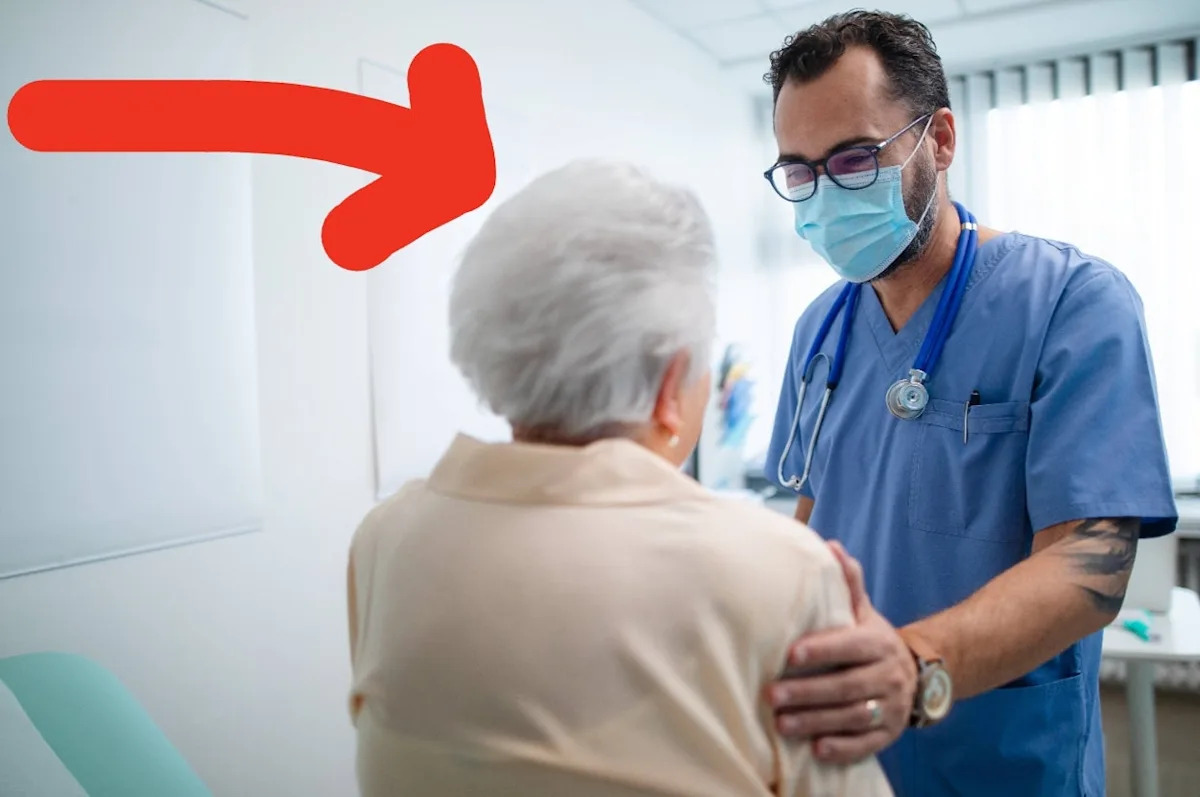When we think about dementia, we often think of a person experiencing memory loss and confusion. While it’s true that these are certainly symptoms of dementia and Alzheimer’s (the most common form of dementia), missing some of the more subtle signs that aren’t as well-known can lead to a later diagnosis and delay in care.
Cirmu Nicolae / Getty Images
With an estimated 6.7 million Americans over the age of 65 in the US living with Alzheimer’s, dementia is far from rare. So, what dementia-related signs should someone look out for in themselves and others? And when should they see their doctor for a dementia screening? Here’s everything you need to know:1. The biggest early sign is spatial issues along with trouble with speech and directions.
Evrymmnt / Getty Images
While we all forget a word now and then, if this becomes a pattern, it could signal a problem.“Difficulty with language including word-finding difficulty, incorrect sentence construction, or difficulty with self-expression can present well before the loss of memory,” said Dr. Arif Dalvi, a neurologist and physician chief of the Movement Disorders Program at Delray Medical Center.It’s easy to brush this off, but it’s important to monitor if there’s any frequency with this behavior. Additionally, you may notice a change in your sense of direction.
Soumen Hazra / Getty Images
“Visual or spatial skills can also be affected early,” Dalvi continued. “A common way this presents is difficulty navigating a previously familiar route or needing GPS directions to a route that was previously known.”2. Pay attention to other red flags as well.
The_burtons / Getty Images
Advertisement
Advertisement
Advertisement
Advertisement
Other less commonly recognized symptoms include difficulty completing familiar tasks, noise sensitivity, and a change in taste and smell, according to Dr. Stanley Appel, neurologist and director of the Ann Kimball & John W. Johnson Center for Cellular Therapeutics at Houston Methodist.“An abrupt change in personality or mood without underlying explanation should also raise a red flag,” Dalvi added.And, more rarely, you might see some symptoms that resemble other neurological issues.
Seb_ra / Getty Images
“Some types of dementia, such as Lewy body dementia, can cause hallucinations or delusions,” Appel explained. “It’s crucial to note that hallucinations can also result from other causes, and any unusual symptoms should be discussed with a health care provider.”3. Bring up any concerning symptoms to your doctor ASAP.
Sakorn Sukkasemsakorn / Getty Images
Related: 17 Cancer Patients Are Sharing The Concerning Symptoms That Made Them Go To The Doctor ASAP
Sadly, there is no cure for dementia. But both experts emphasized that an early diagnosis can improve quality of life and stop the disease from progressing as quickly.“Traditional treatment options, such as medication to manage symptoms, recommendations for lifestyle changes, and referrals to support services like occupational and speech therapy are vital in maintaining cognitive function and overall well-being,” Appel said.Plus, in recent years, there has been a significant breakthrough in the treatment of Alzheimer’s disease.
Halfpoint Images / Getty Images
“The FDA has approved two new drugs, Aduhelm (aducanumab) and Leqembi (lecanemab), that target the buildup of amyloid beta plaques in the brain, which is a hallmark of Alzheimer’s disease,” Appel said. “Although the approval of Aduhelm has been controversial, some studies have shown that it can slow cognitive decline in certain patients. On the other hand, clinical trials have shown that Leqembi can slow cognitive decline in certain patients with mild to moderate Alzheimer’s disease.”In addition to lessening the build-up of amyloid plaques, Appel added that some doctors are working on other innovative approaches to treatment. One is to suppress neuroinflammation with regulatory T-cells (Tregs), and other investigations are using advances in gene therapy to develop novel approaches for Alzheimer’s disease.“These breakthroughs in medical science offer hope for individuals with dementia and their families,” he said.
Ariel Skelley / Getty Images
Advertisement
Advertisement
Advertisement
Advertisement
There is no “official” age to get a dementia screening, but it’s always a good idea to reach out to your doctor if you’re experiencing any symptoms. Dalvi emphasized that since the incidence of dementia rises with age, particularly after 65, that’s a good time to have a simple dementia screening such as a mini cognitive assessment. Physicians can look for reversible causes of memory loss, like a vitamin B12 deficiency or hypothyroidism.
“Screening for hearing loss at this age is also important as it is estimated that 1 out of 9 dementias can be explained on the basis of age-related hearing loss,” he said.
Halfpoint Images / Getty Images
While there may not be a complete cure for dementia and Alzheimer’s, there is a lot doctors can do once they reach a diagnosis.“There should be no stigma associated with screening for dementia,” Appel said. “An early and accurate diagnosis allows a plan to be put in place for either treating or slowing the cause of dementia.”
Thomas Barwick / Getty Images
This article originally appeared on HuffPost.
Also in Goodful: My Mom’s Disappearance Was A Mystery. Then I Saw An Old Photo — And What I Discovered Next Left Me Shaken.
Also in Goodful: “NEVER Disclose This”: Women Are Sharing The “Urgent” Safety Tips That Other Women Taught Them, And They’re Crucial To Know

